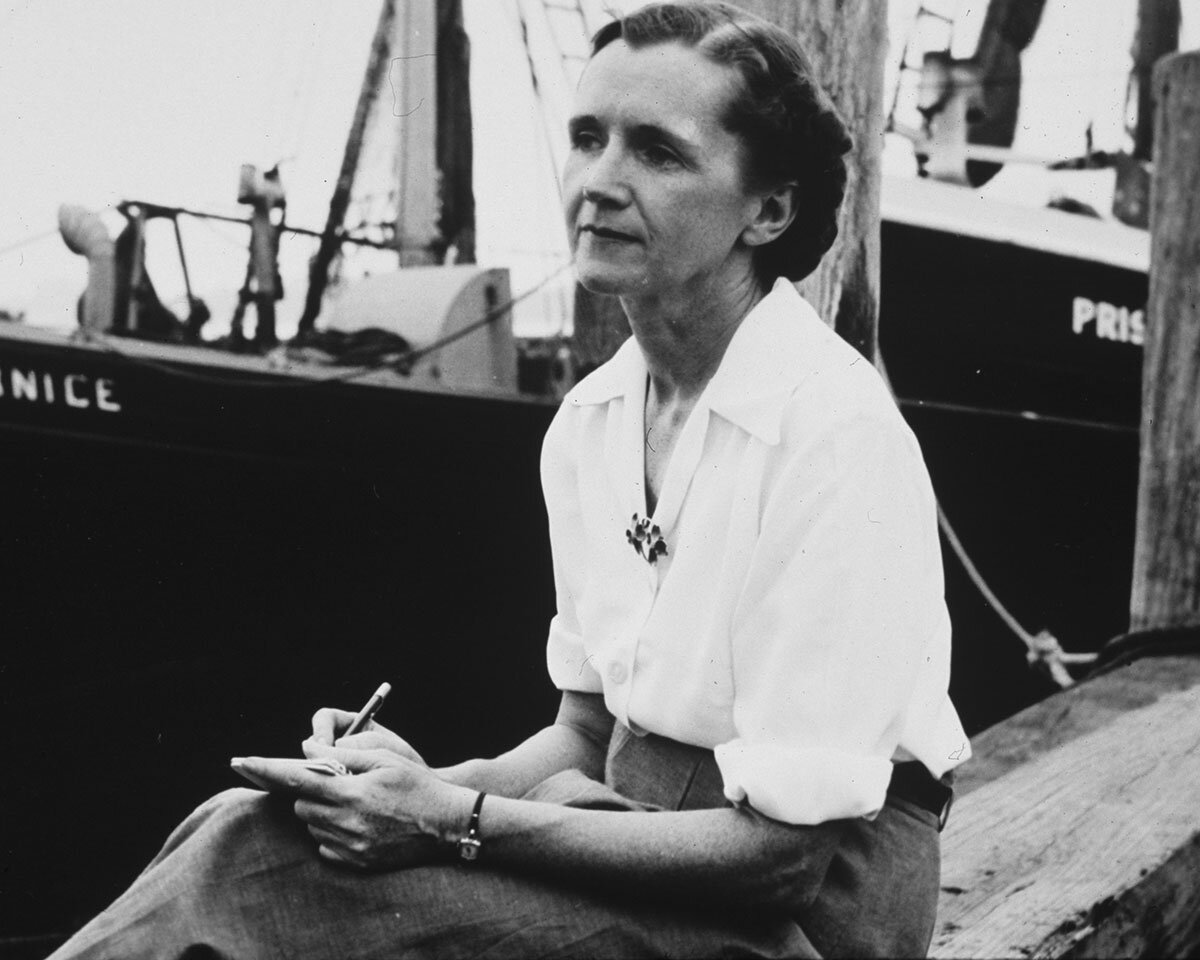“If we are going to live so intimately with these chemicals—eating and drinking them, taking them into the very marrow of our bones—we had better know something about their nature and their power.” — Rachel Carson
By Peggy McGrath
Courtesy of The Well (blog for The Well Spirituality Center)
and Wednesday Journal, April 22, 2020
As I reflect on Earth Day in this 50th anniversary year, I cannot help but remember and honor Rachel Carson. She was its impetus. In the imaginative and poetic prose of Silent Spring, she articulated the danger we would be facing with the indiscriminate use of pesticides.
If one is unaware of her personal story, it is one of love of family and of the natural world.
She was raised during the time of the ‘nature-study’ movement. This movement believed that by studying nature, “the intricate design of the Creator would become visible.” They believed that nature was holy. Her mother was involved in this movement and as an avid lover of nature, taught Rachel to experience and identify with that world. Rachel also loved writing about it. At the age of 10, she was published in a prestigious children’s magazine.
Rachel always thought of herself as a writer. However, while in college and taking a biology class with a beloved teacher, she switched her major to biology. She later earned a master’s in marine biology. Her two loves would complement each other when she became the Editor-in-Chief at the U.S. Department of Fish and Wildlife Publications. With the encouragement of her supervisor, she sent an essay to the Atlantic Magazine. This was the beginning of her influence on a much larger readership. She became a well-known and respected author prior to Silent Spring. Her 3 previous books were award-winners due to her integration of scientific knowledge and imaginative storytelling.
The devastation of song birds was the reason for her beginning research for Silent Spring.
As she struggled to finish her book, she kept secret that she was dying of cancer. However, it was her struggle with cancer that demonstrated her self-sacrifice and determination to get the message out about the dangers of pesticides.
Rachel’s books were always framed in her experience of the creativity and beauty of nature. She uses the words “wonder” and “awe” to describe what she saw and felt. They are the same words Thomas Berry and others have used to describe the sacred.
And how do these reflections concerning Earth Day make me feel about our present reality?
As we struggle with understanding this crisis caused by the coronavirus, I am grateful for Rachel’s lessons that teach us to live within the rules of nature and not against them. We must learn to value nature’s wisdom and make policies that are written with this wisdom in mind. Some scientists believe that as we venture into uninhabited areas of the world, disrupting the ecosystems there, we will continue to bring forth unknown viruses. Rachel saw the integration of all living things needing to be understood as a whole system. If we do so, perhaps we will no longer blindly make decisions in disparate ways, with monetary profits often the winning value.
Let us remember everything is interrelated. Everything fits into the mysterious whole that is still unfolding. This energy of life, this energy of the cosmic Christ, this persistent movement of existence is always evolving.
Let us remember that living in this democratic society, we need to be reminded of the courage and persistence of Rachel Carson. She lived out her convictions despite attacks to discredit her. She defended her research in the world of politics where she spoke at Senate hearings and other political events. It is in the political arena where we have a voice in prioritizing what values we wish all levels of our government would represent. We vote so they act on those values and pass laws that execute those values. We cannot be bystanders in this process.
So as we celebrate this special Earth Day, may we remember and be inspired by the spirituality of Rachel Carson- her awe and wonder of the beauty of the natural world and the active role she took in protecting it.
A few suggested actions to honor Rachel-
Contact your Senators and Representatives to encourage them to protect against the assault on 28 Environmental Acts, including The Clean Air Act and the Clean Water Act.
Donate to Beyond Pesticides (beyondpesticides.org), a 35-year-old D.C. non-profit focused on educational and legal advocacy for protecting our one sacred earth from toxins.
Donate to Union of Concerned Scientists (ucsusa.org), a 50-year-old non-profit where scientists are focused on maintaining the integrity of science in policy making.

